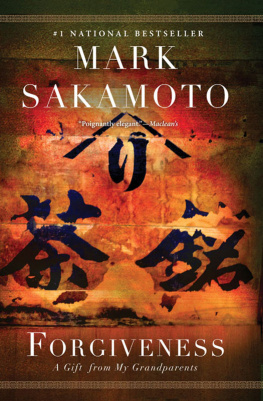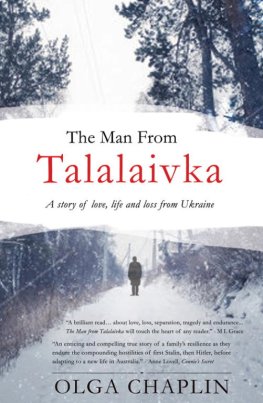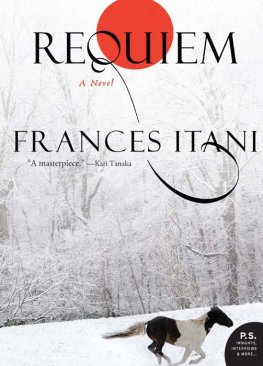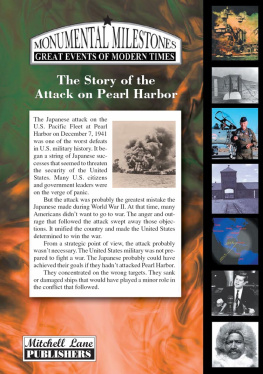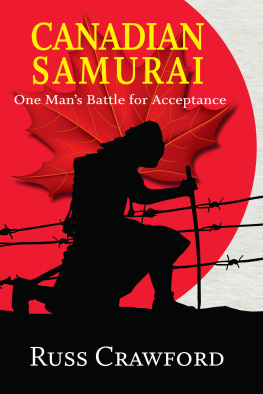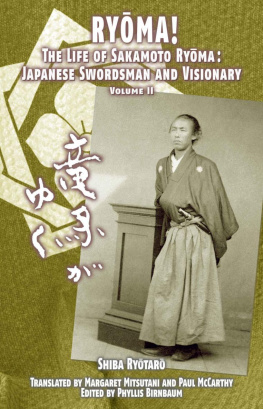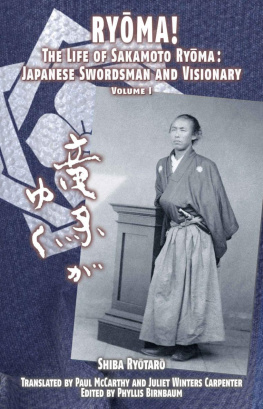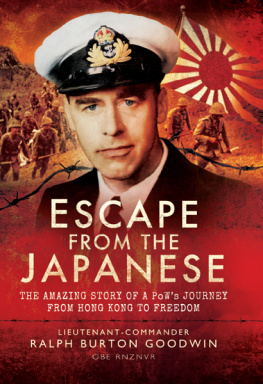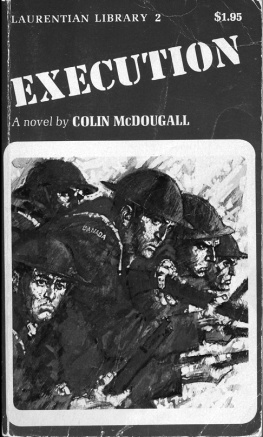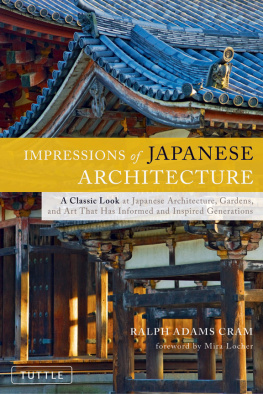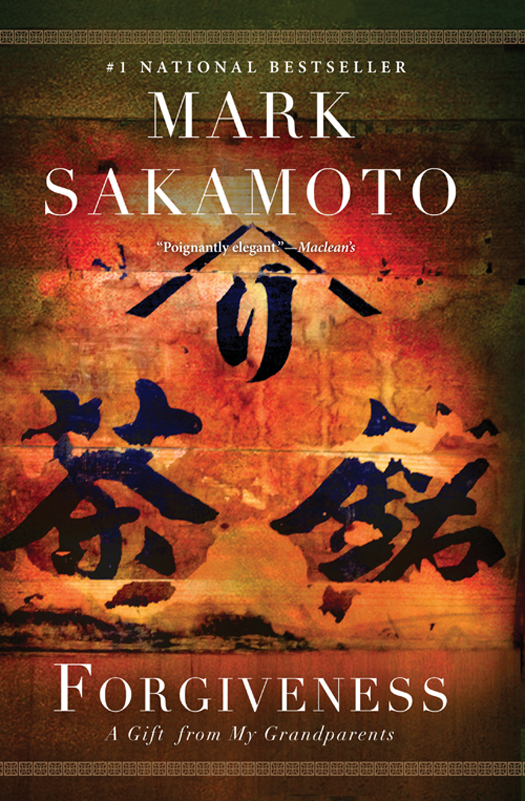FORGIVENESS
A Gift from My Grandparents
M ARK S AKAMOTO

For my daughters, Miya and Tomi, so you know what you are made of
I held the cassette gently in my hands, flipping it from side to side. It felt like a relic. I know that in actuality an audio cassette is simply a spool of magnetically coated tape, wound through two spools encased in a protective plastic shell. But the transparent rectangle in the middle of the cassette was a window into my past. My mom was in there. She was laughing in there, she was carefree, she was in love. The cassette was thirty-two years, four months and sixteen days old. My mom was alive in there. She was alive and well.
Im ashamed to admit that I had had the tape in my possession for over a year. I had held it in my hands countless times. I would round the edge with my fingers, staring at it, dwelling on it. This outdated piece of technology made my mind race and my heart ache. I cursed each time that cold wave came over me. I knew the routine. There was that one memorydifferent every timethat triggered loss of breath and then heaving and tears. There was the thought that I should regain control of myself. There was the failure of that thought. There were more tears as I surrendered.
I was eight all over again.
Ive never had the strength to play the tape. Sometimes I wish it had never come into my possession. Thirteen months earlier, my grandpa Sakamoto died. Hideo Sakamoto was ninety-six and the local newspaper ran a story about him. Harold Brucker, an old customer of his, recalled him running up and down the grocery store stairs with one-hundred-pound potato sacks.
He was like the Atlas Man, Harold reportedly said to the Medicine Hat News.
As an adult Hideo weighed only 124 pounds, but he was simply indefatigable. Those burlap potato sacks would cut into his bony shoulders. The weight of his family, too, rested on those sore shoulders.
Sometimes he was wrong, like in 1954, when he decided to plant all the crops two weeks early only to have them completely wiped out in a flash frost. But he was right when it mattered. His lifes most important decision was a grand-slam home run. He married an angel. Mitsue Margaret Sakamoto was his wife for sixty-eight years.
Throughout his married life, as he went about his day, he would repeat her name over and over again under his breath. Just the idea of her seemed to keep him going. Mits Mits Mits he would whisper.
He was meditating on her. She was his koan. She was his everything. Im sure Ill live my whole life and never witness a love so necessary.
Two days after Grandpas funeral, I went over to my grandma Sakamotos. Parking in the driveway, I could see her through the kitchen window, standing at the sink looking down, hard at work, no doubt on some dish for me to eat.
She has spent tens of thousands of hours in that very spot, thinly slicing beef for sukiyaki, mashing kamaboko, thawing tako, mixing the filling for gyoza, draining ohitashi, rolling maki sushi. She moves through the kitchen with an ancient grace. I have spent my whole life watching her cook.
But it always started with tea. Piping hot, matcha green tea.
As I walked through the side door that day, my grandma was drying her hands with a dishcloth. This scene, too, had played out a million times.
Hi, Gram, I said as I took off my shoes.
Hi, come in, come in. Im making rice.
We met in the middle of the kitchen and hugged. I kissed her cheek. Her face was round and elegant. Her skin at eighty-nine was still soft and vibrant. There were many years when she went without, but her appearance did not betray that hardship. She could pass for sixty-five. At five-foot-seven she was taller than most Japanese women. She was reserved and exceptionally polite. But this gentle exterior masked a fierceness and pride that has served as the foundation for every single person in her family. And her family it is. She is our candle. Our entire family delighted in sharing her with as many people as we could. Countless friends had paraded through the same side door I had just entered.
Grandma opened the cupboard and pulled out two small Japanese ocha cups. I caught a glimpse of my grandpas cup sitting where it always has, on the bottom shelf, first cup on the left. We sat down. The kitchen table was littered with sympathy cards, way more than youd expect for a ninety-six-year-old man. The broken handwriting of the card just to my right was unmistakable. It was from my maternal grandfather, who lived just down the Trans-Canada Highway in Calgary.
A life well lived. With love & sympathy, Ralph MacLean.
I smiled and turned back to my grandma.
How are you feeling? Did you sleep well? I asked.
Oh, Im okay. You know, I miss him. Its so quiet here now. But I couldnt die before him.
Its true. He would have been completely lost.
The tea had finished steeping. I poured her a cup, then one for myself. She nodded a thank you and ran her index finger across the ceramic lip. She was lost momentarily in thought or grief, I couldnt tell for sure, but then she snapped to attention.
Want some fish? Or tsukemono? She giggled.
She knew I loved tsukemono. She knew everyones favourite dish and always had it at the readyit was her welcome mat.
Sure, Gramthanks. I smiled, knowing the chain reaction I had just initiated.
Tsukemono: in the fridge, in a ceramic bowl wrapped in Saran, second shelf to the left. Two small plates: cupboard to right of the sink where the cups are, bottom shelf. Chopsticks: same cupboard, top shelf, in the middle between the rice bowls and the teacups. Shoyu: cupboard to the left of the sink, top shelf, beside the blue bowl of white sugar with the ornamental spoon from Niagara Falls.
This kitchen is the one place in the world where I could function completely blind. Everything is in the exact place it has been for my entire thirty-four years. In my minds eye it always seems so much larger than it actually is. The kitchen is essentially a galley. The counter runs across the north wall, with the stove and fridge side by side and the kitchen table hovering on the other side of them. The south wall is covered with bamboo wallpaper sent by my grandpas cousin in Tokyo. The table and chairs are standard 1960s fare. Its actually retro-kitschy. It is also the most comforting place in my universe.
When I was in grade school, I would feign illness to spend the day at my grandparents. My elementary school was just down the road from their house, a six-minute drive if you didnt hit the one red light at the bottom of the hill. Peering through the schools main foyer doors, Id wait to see my grandpas lime green 1979 GM pickup crest the hill. On the way home, wed stop at the video store and Grandpa would bellow a heavily accented Hell-ooo, which actually sounded more like Herr-ooo, to no one in particular and flash his toothy grin as we walked in. Man, that guy could smile.
By the time we got home, the salty sea smell of miso soup would be filling the kitchen and the futon would be laid out on the living room floor by the television. Grandma would greet me at the door; shed feel my forehead and look at my face.
Youre warm, shed say, lying.

